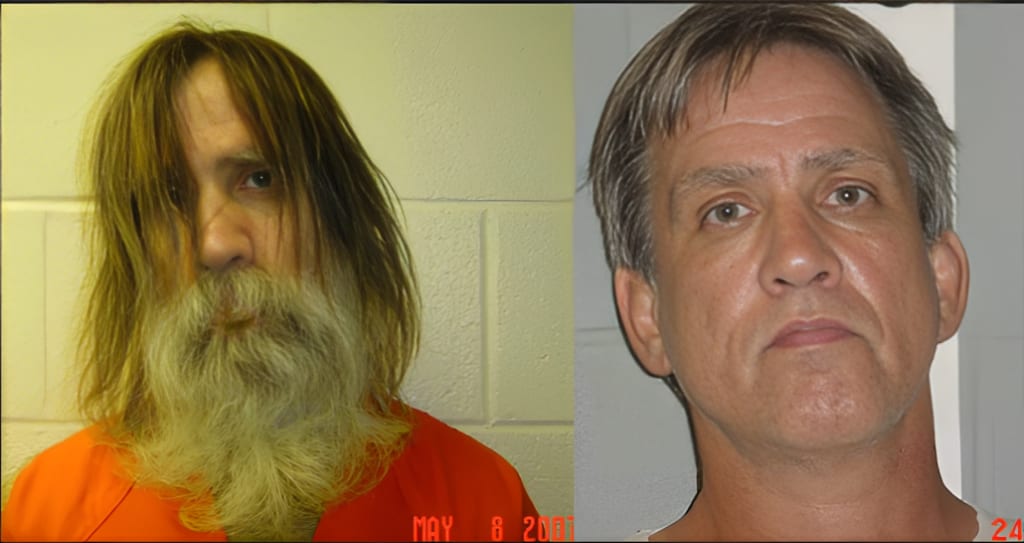Unjust Isolation: The Stephen Slevin Case

In 2005, a man named Stephen Slevin, who was around 50 years old, was taken to the Doña Ana County Detention Center in New Mexico. He was accused of driving under the influence and being involved with a stolen vehicle. However, those charges were later dismissed. When he arrived at the detention center, Slevin was physically healthy and had enough food, but he was also dealing with depression.
After being booked, Slevin ended up spending most of his 22 months in jail in a special padded cell meant for solitary confinement. This was apparently a common practice for people with mental illness in that facility. During this time, Slevin went through very tough challenges due to being isolated for long periods. He got fungal infections and painful sores from being in one position for too long, and his mental health got worse, leading to confusion and disorientation.
At one stage, Slevin had to pull out his own painful tooth. His mental and physical condition deteriorated to such an extent that he lost about one-third of his body weight. As a result, he was considered legally unfit to stand trial.
Slevin faced many challenges when seeking justice. People in jail often have a hard time getting the help they need to address mistreatment. This is because they have to deal with expensive fees to file legal complaints, go through a complicated grievance process within the facility, and struggle to find lawyers who are willing to take on their cases.
However, Slevin was fortunate to have Matthew Coyte, a lawyer who used to work as a public defender in New Mexico, on his side. Coyte was deeply affected by the visible change in Slevin's physical and mental well-being, as seen in the striking difference between his initial and final pictures. Recognizing the cruelty and unacceptable conditions of solitary confinement, Coyte decided to represent Slevin and fight for justice.
Coyte and Slevin took legal action by filing a lawsuit in federal court against the county board of commissioners, the jail, and two staff members. They claimed that Slevin's civil and Constitutional rights were violated. Even though Doña Ana County offered them $25,000 to settle the case, they decided to reject the offer and proceed with a trial.
Following an intense trial, Slevin received the shocking news that he had advanced-stage cancer. In the end, the jury awarded him a substantial amount of $22 million as compensation. This was one of the highest sums ever granted in a federal civil rights case related to being in jail.
After ongoing legal challenges, Slevin eventually agreed to a reduced settlement of $15.5 million. Money wasn't his main concern; he wanted the truth about his ordeal to be acknowledged publicly and for those responsible to be held accountable.
Sadly, Slevin has since passed away.
As a result of the lawsuits led by Coyte and advocacy efforts by the American Civil Liberties Union (ACLU), there have been important financial consequences for county budgets and a call for changes in how solitary confinement is used. In 2019, the state of New Mexico passed a law to reform the practice of solitary confinement. This law requires jails and prisons to provide reports on their use of solitary and bans its use for specific groups like children, pregnant women, and individuals with mental illness.
The lawsuits have been extremely important in making these changes happen. Barron Jones from the state ACLU acknowledges that the lawsuits have played a significant role in advocating for reform. Additionally, the large number of lawsuits has put pressure on the insurance pool managed by the state association of counties in New Mexico, which provides coverage for law enforcement activities.
The association is responsible for paying awards of up to $2 million, while the counties are left to cover the remaining costs. With the growing number of lawsuits, localities have experienced higher insurance premiums. Moreover, counties that face frequent lawsuits may lose their pool insurance coverage. This has become a motivating factor for them to revise their policies on solitary confinement in local detention facilities.
A study conducted by UCLA has indicated that insurance pools can be an effective way to exert pressure on law enforcement agencies when it comes to managing risks. When county jails face multiple lawsuits due to the inhumane mistreatment of inmates, it becomes financially burdensome for them. Jessica Sandoval, a representative from the Unlock the Box Campaign to End Solitary Confinement, views Coyte's legal approach as impactful and encourages more people to consider this kind of litigation.
Being placed in solitary confinement can cause significant mental and physical harm, leading to self-harm and even suicide. What's concerning is that unlike a sentence given by a judge or jury, time in solitary is often imposed by corrections officials for minor rule violations. This approach ends up creating more risks, crime, and violence instead of preventing it. Coyte strongly believes that solitary confinement is a harmful and ineffective tool used in law enforcement, and finds it absurd.
Read next: THE SIX-YEAR-OLD BOY GOT SICK OF HIS PARENTS’ ABUSE AND RAN AWAY

 My First News Item
My First News Item My Nine News Item
My Nine News Item